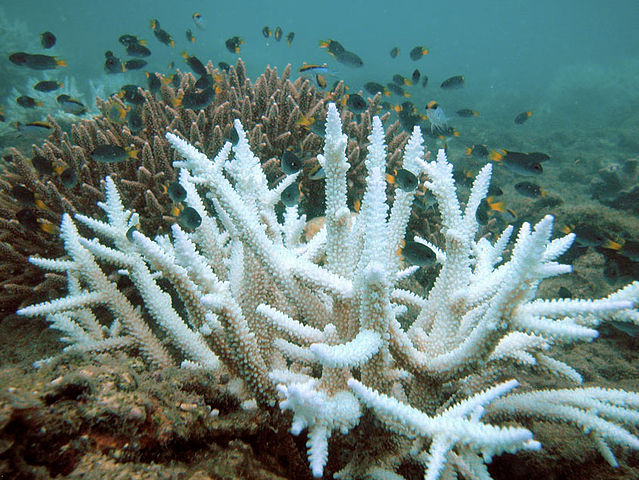 The Great Barrier Reef, also called the rainforest of the sea, is one of the most complex ecosystems in the world.
The Great Barrier Reef, also called the rainforest of the sea, is one of the most complex ecosystems in the world.
Located off the shore of Queensland, Australia, the Great Barrier Reef extends over 1,400 miles and contains more than 3,000 individual reefs. The Reef is home to countless sea animals, including 1,500 different species of fish and 400 types of hard coral.
Unfortunately, since the late 1980s, the Reef has shrunk and lost about 50% of its original population.
The main cause? Coral bleaching. Change in water temperature, a result of climate change, causes corals to get stressed and expel algae. These algae give corals their colorful pigments, so by expelling the algae, the coral is left completely white.
Since the 1990s, there have been five widespread bleaching events in the Great Barrier Reef. The most recent was in 2020, striking the northern, central, and southern regions of the Reef. Usually, the peak temperature occurs in late February or early March. However, in December of 2021, scientists found extremely high levels of heat, with the Reef on the verge of mass bleaching.
Australia's Plan For The Reef
On January 28, 2022, the Australian Government announced a commitment of $1 billion to preserve the Great Barrier Reef. This funding includes the monitoring of the reef, extensive research, and hopefully, effectively stopping the key threats to the reef.
However, some speculate that this funding is just a desperate attempt to prevent the reef from being placed on the World Heritage “in danger” list. While scientists appreciate the money, they also criticize the government for failing to take proactive action. They are concerned about the government’s constant support of greenhouse gas emissions and the use of fossil fuels which are the leading causes of climate change. While the funding revolves around water quality, they believe climate change as a whole should be addressed.
With luck, scientists and the government, together, can preserve this irreplaceable site of natural beauty before too little is left to save.
Sources: BBC, Grist







